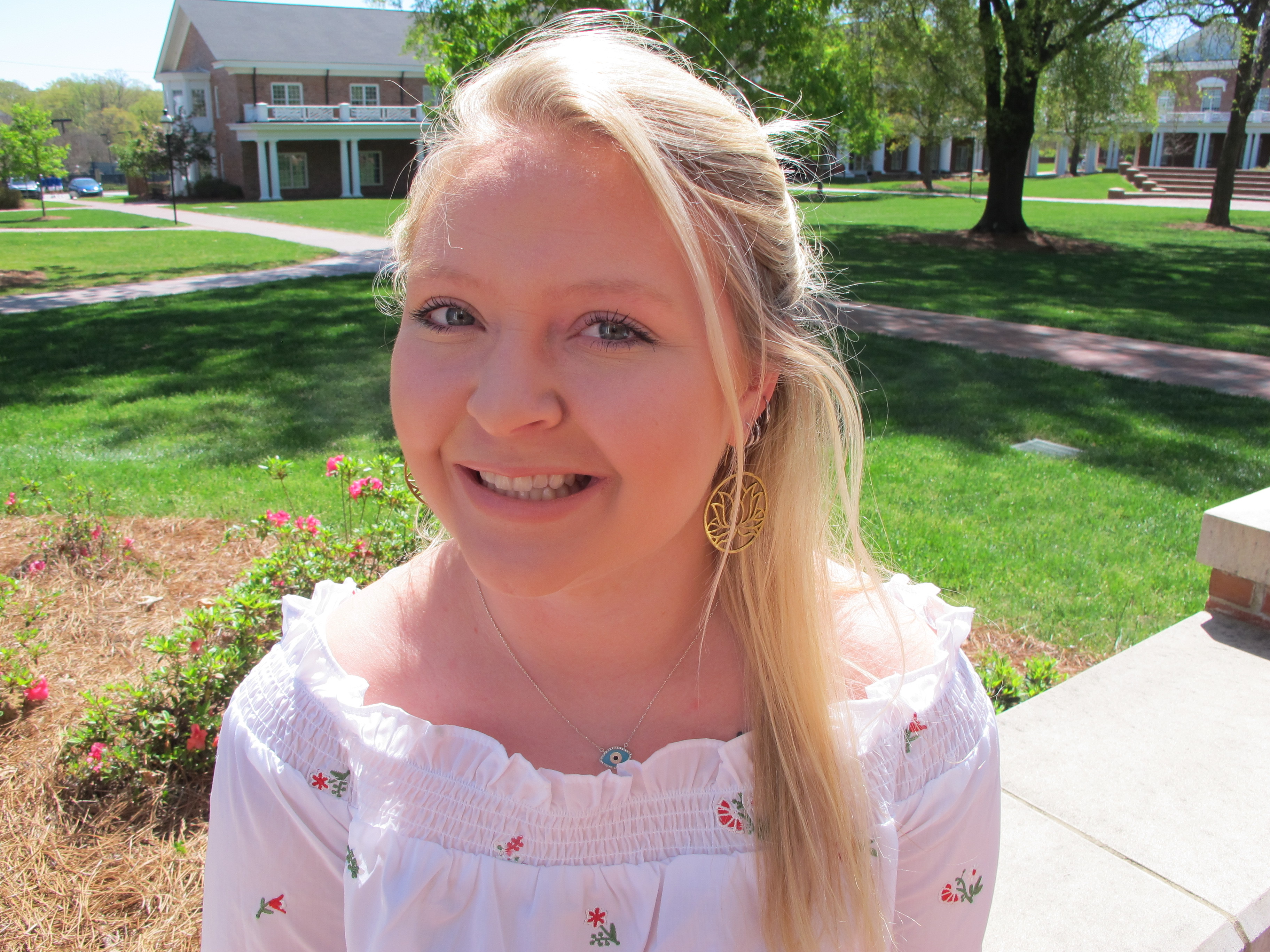The senior Religious Studies major studied Jewish responses to white nationalism.

Hannah Thorpe
Majors: Religious Studies and Psychology
Faculty mentor: Geoffrey Claussen, Associate Professor and Chair of the Department of Religious Studies
Title of research project: Race, Religion, and Nationalism: Jewish Responses to White Nationalist Movements
Research abstract:
On Aug. 12, 2017, over 100 white nationalists gathered in Charlottesville, Virginia at a rally to protest the removal of Confederate monuments and unite far-right extremist groups; the chant “Jews will not replace us” rang throughout the city’s downtown mall as Nazi symbols were displayed. A number of other aggressive white nationalist threats and attacks have occurred in the United States over the past three years, including the Tree of Life massacre, the deadliest antisemitic attack in American history.
Over the course of 6 months, I conducted ethnographic research at a synagogue that had directly experienced white nationalism in order to examine shifting conceptions of racial identity, attitudes towards ethnic nationalism, and Jewish identity. Drawing on 26 interviews with congregants and synagogue leaders, I analyze how whiteness is negotiated by members of this Jewish community, some of whom reject whiteness completely, some of whom grapple with the weight of whiteness, and others who are ambivalent towards race in general.
I argue that the way race is conceptualized influences the way interviewees view white nationalist movements, if they stand in solidarity with other targeted groups, and how they understand Jewish values and Jewishness as motivating their responses to white nationalism. The majority of participants in this congregation feel that their Jewish identity, informed by Jewish values that challenge “whiteness” as a power category, calls them to stand up to white supremacy and resist the oppression of minority groups.
What made this topic interesting to you? How did you get started on your research?
I felt compelled towards an academic response to the rise of white nationalism that highlighted and told the stories of groups who were targeted by these hate groups.
What was the most exciting or meaningful part of the research process for you?
Being able to share other people’s stories and engage personally in a community.
How has your mentor shaped your experience?
My mentor has invested time and energy into my personal and intellectual growth in a way that has made me believe in my capabilities and push myself to be the most successful version of myself I can be.
How do you think your research might shape you or your career after graduation?
My research made me realize that I wanted to go to graduate school and become an ethnographer and professor. I’ll be attending Emory University’s Candler School of Theology next year, pursuing my master’s degree.



